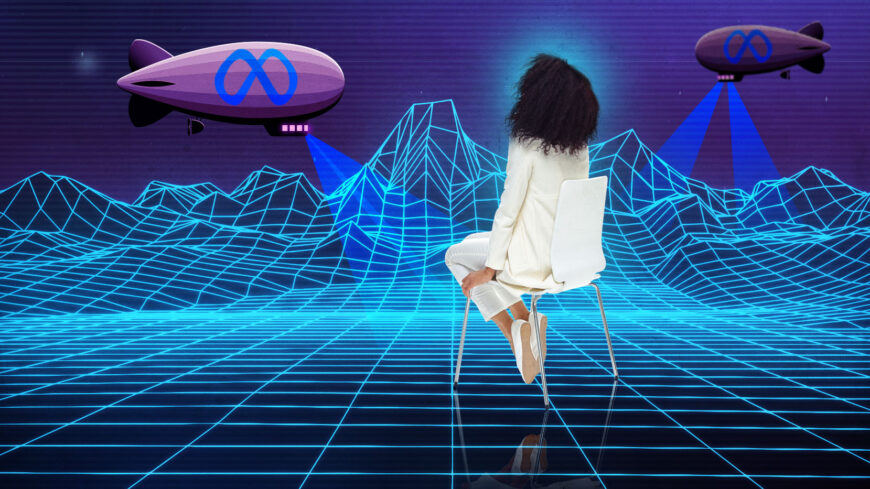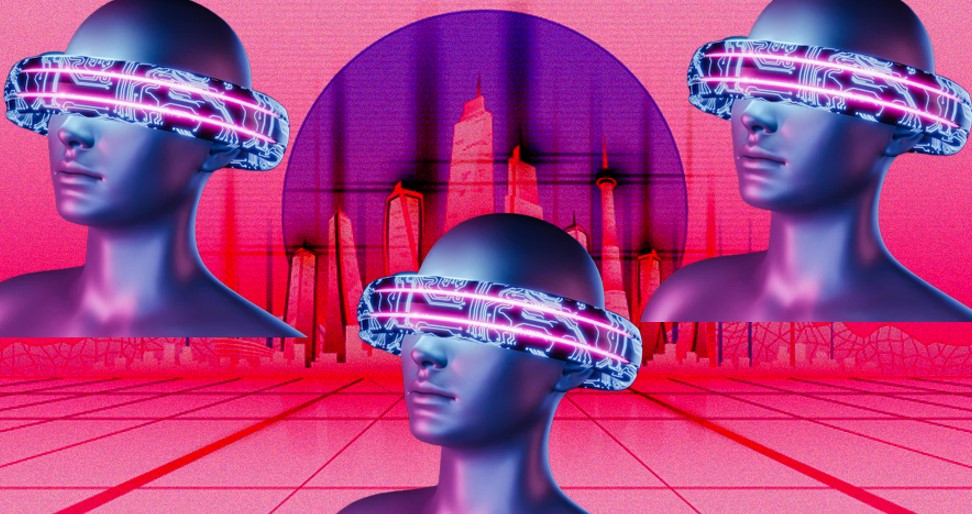Working in the meta-universe is no longer a distant future – there are professions of their own. We tell you what problems will be solved by specialists in the meta-universe and how familiar things will be adapted to us in virtual space.
In the virtual world, clubs like cricket360.bet will have their own offices to visit. And such offices will need employees. So it will create new jobs, which is undoubtedly a good thing.
But first, let’s find out how Metaverse can benefit the environment. The Metaverse offers a completely immersive and interactive experience for users, which is perfect for gambling. There are no limits to what can be created in the Metaverse, so users can gamble in any setting or environment they can imagine. The Metaverse also offers unique opportunities for social interaction, which can make gambling more fun and exciting. Finally, the Metaverse provides a secure and private environment for users to gamble in, ensuring that their personal information and money are safe.
How can the metaverse help save nature?

Some AR and VR technologies are being introduced to replace familiar physical objects with virtual ones. It allows a slight shift away from the focus on consumption and hoarding – and becomes more environmentally sustainable.
The fast-food restaurant chain Burger King has already abandoned plastic toys for children in some of its outlets and replaced them with augmented reality games. The chain has partnered with Rovio Entertainment, a software developer best known for the Angry Birds franchise. Visitors to Burger King can scan the codes on food packages and choose a virtual Angry Birds toy. You must protect three 3D eggs from bird attacks in the video game. Also, you can save the photos to share them with your friends. Herewith Rovio uses WebAR technology, which allows using AR capabilities without downloading special applications.
And in South Africa, Burger King offers collectible cards with augmented reality technology when ordering children’s menus. Each physical card contains a unique image of the animal, an interesting fact about it, and statistics. Instead of putting toys in cereal boxes, it launched an augmented reality campaign celebrating the release of “The Lion King.” Customers could scan a code on the back of the package to complete three puzzles and mini-games and watch excerpts from the new movie.
The packaging industry is one of those industries struggling to get more environmentally friendly. Brands worldwide are looking for ways to reduce packaging layers, reduce waste, and encourage customers to recycle and reuse these materials.
AR and VR technology can be used in various ways for this purpose. For example, you can place an AR code on the packaging that will accommodate the information that doesn’t fit on the packaging and allow you to learn more about the brand’s environmental initiatives.
For example, the world’s largest banana supplier Chiquita, in partnership with the Shazam app and the creative agency Dffrnt Media, began placing such codes on its products. Users can scan the code through the Shazam app and see how the development went before hitting store shelves. The company also discusses how it works to reduce waste, CO2 emissions, and water consumption.
Now let’s fantasize and find out what professions will be in demand in virtual reality.
What is a meta-vacuum?

The meta-universe is an amalgamation of physical, augmented, and digital reality in the online space. Simply put, people interact with each other in a virtual almost-game world that everyone takes seriously.
For example, Steven Spielberg’s “First Man Standby” best explores the idea of a meta-universe. Players are immersed in a virtual world with display glasses. In this world, they communicate, compete, fight, and make friends in the guise of their avatars – digital doppelgangers.
In 2020-2022, the meta-universe became a notable severe trend. It’s already expanding into jobs – almost half of Americans surveyed by YouGov (44%) want to work in the meta-universe. New professions also appear here: we tell you how they are transitioning to virtual reality and why they are worth paying attention to.
Virtual reality architect
A virtual reality architect is a specialist who designs a digital space and creates “life” in detail. For example, he will think of where people will live, in what era, and on what planets. He will also design the landscape and architecture of this fictional world.
A VR architect must know about the following:
- 3D modeling;
- graphic;
- and sound design.
And also know the basics of psychology – it will help him understand how digital space affects users and better adapt to it.
And the skills of such an architect are helpful not only in the meta-universe. They are increasingly used in education, design, and architecture. Therefore the profession will be relevant regardless of the future of virtual worlds.
Community Manager

Brands come to the metaworld, as well as the offline reality. And they will need an audience and also a cohesive community. So a community manager will become a link between the product and the consumers in the meta-universe.
Community managers manage communities, groups of people with common interests united around a product, brand, or idea.
A specialist will not only be engaged in attracting new people to the community but will also be responsible for virtual events. And thanks to the unlimited possibilities of the meta-universe, he will be able to realize ideas that are unavailable in the real world. For example, to hold a product presentation in the Mariana Trench or organize a fashion show on the surface of a star.
Artists and authors of virtual objects
With the development of the meta-universe, the NFT field is evolving. You can sell any unique digital object in the NFT marketplace. In this case, the buyers do not receive the works themselves but tokens – digital certificates confirming the possession of the thing. Music, images, video, text, or 3D models can be monetized with the help of NFT.
Designers working with virtual reality are increasingly being asked to design objects for the meta-universe. They fill things with familiar details but do it in their way and a digital version of reality. In this way, the meta-universe becomes real, and every user will, in theory, be able to replicate their room and favorite everyday objects in virtual form.
Artists can create entire collections of furniture or clothing in the meta-universes. Famous companies and projects are already doing this: JAY-Z, Sotheby’s, Binance US, Adidas, and Manchester City Football Club.
Blockchain gamers

With the growing popularity of cryptocurrencies, games with the Play-to-Earn model, where gamers earn in-game and can withdraw money in the equivalent of cryptocurrency or NFT, have become more popular.
Gamers will have a different place in the meta-universe – for example, in the cyberpunk-style role-playing game Neon District. You can create and sell items as an NFT product in this game. For example, player Alex Amsel bought a unique asset at an auction of the game – a digital token of the first boss of the game, “Baus” for $25 thousand. Thanks to this, he became one of the wealthiest collectors. In the future, gaming will be a full-fledged profession, and you can make money on it.
Artists and live performers
The Pandemic launched a wave of popularity of virtual concerts. One of the first online stars was Travis Scott. In 2020 the rapper performed his show in Fortnite, earning $20 million. Ariana Grande also tried a new format: in October 2021, the singer gathered an audience of 78 million listeners.
Here the same niche will find other artists – DJs, streamers, stand-up comics, actors, and directors. Holding events in a meta-universe has advantages – you can quickly change the scene scenery or create unrealistic effects, increasing the impact of what’s happening on the audience.




